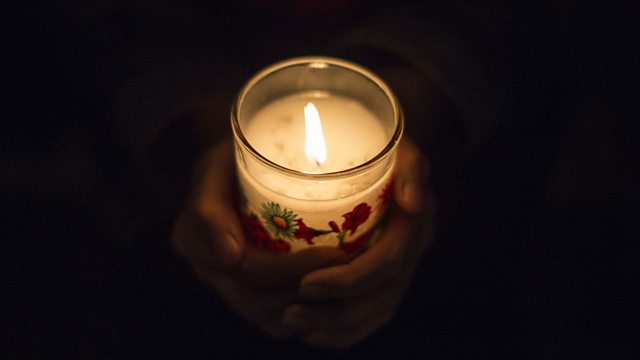Rhiddian Brook - 02/04/2025
Thought for the Day
Yesterday I went to hear a talk titled ‘Is there Hope for the Holy Land?’ On the flier, the word Hope had a capital letter.
In the light of the appalling current reality, ‘no’ seemed like the only reasonable answer to such a question. But the talk was being given by a friend, a Palestinian Christian whose family had been working for years in the field of reconciliation between Israelis and Palestinians. If anyone could answer such a question, he could.
But he started with a quietly devastating observation: ‘I didn’t choose the title of this talk,’ he began. Politely hinting that it was not the right question to be asking. He believed that most people asked him this question because they couldn’t face what was happening in the conflict now. They jumped ahead in the lazy hope that everything would somehow be okay.
It was like leaping to the Resurrection, when most of us are living in the pain and mourning of Good Friday.
He then took the word hope, laid it on the table, and proceeded to cut it open. His dissection revealed a word that is quickly anaesthetised when it is untethered from the reality of human pain. And when hope makes us passive or ignore suffering, it becomes meaningless.
His Hope, he said, rested in the hands of a God who reconciled the world by experiencing the pain we face. And that God’s reconciliation was only possible because He recognised and entered into our humanity. This is the kind of Hope that bleeds.
It’s what moves us from passive comfort to active solidarity. It gives us the fuel to perseverance and to keep believing that reconciliation is even possible. And a belief your cause will ultimately succeed despite opposition or indifference.
My friend told us that some Palestinian colleagues did not like the Oscar winning documentary No Other Land - even though it was sympathetic to their cause – simply because it had been co-made by an Israeli. His friends had given up on the other side’s humanity. And in the work of reconciliation, if you can’t see the other’s humanity, you’ve lost.
Hope with a capital H comes at a cost. There are powerful forces who seem to regard reconciliation as a goal not worth pursuing. And there is only so much devastation people can consume at a time. The need to look away is understandable.
Risk and failure stalk the work of these reconcilers but, as was quoted on the night, it is surely better to fail in a cause that will eventually succeed than succeed in a cause that will ultimately fail.
Even though Jesus knew that Lazarus would live, He wept both for his friend and in solidarity with all of those who live this side of Hope.
Duration:
This clip is from
More clips from Thought for the Day
-
![]()
Rev David Wilkinson - 08/09/2025
Duration: 03:06
-
![]()
Chine McDonald - 06/09/2025
Duration: 03:12
-
![]()
Rev Lucy Winkett - 05/09/2025
Duration: 03:03
-
![]()
John Studzinski - 04/09/2025
Duration: 03:24






